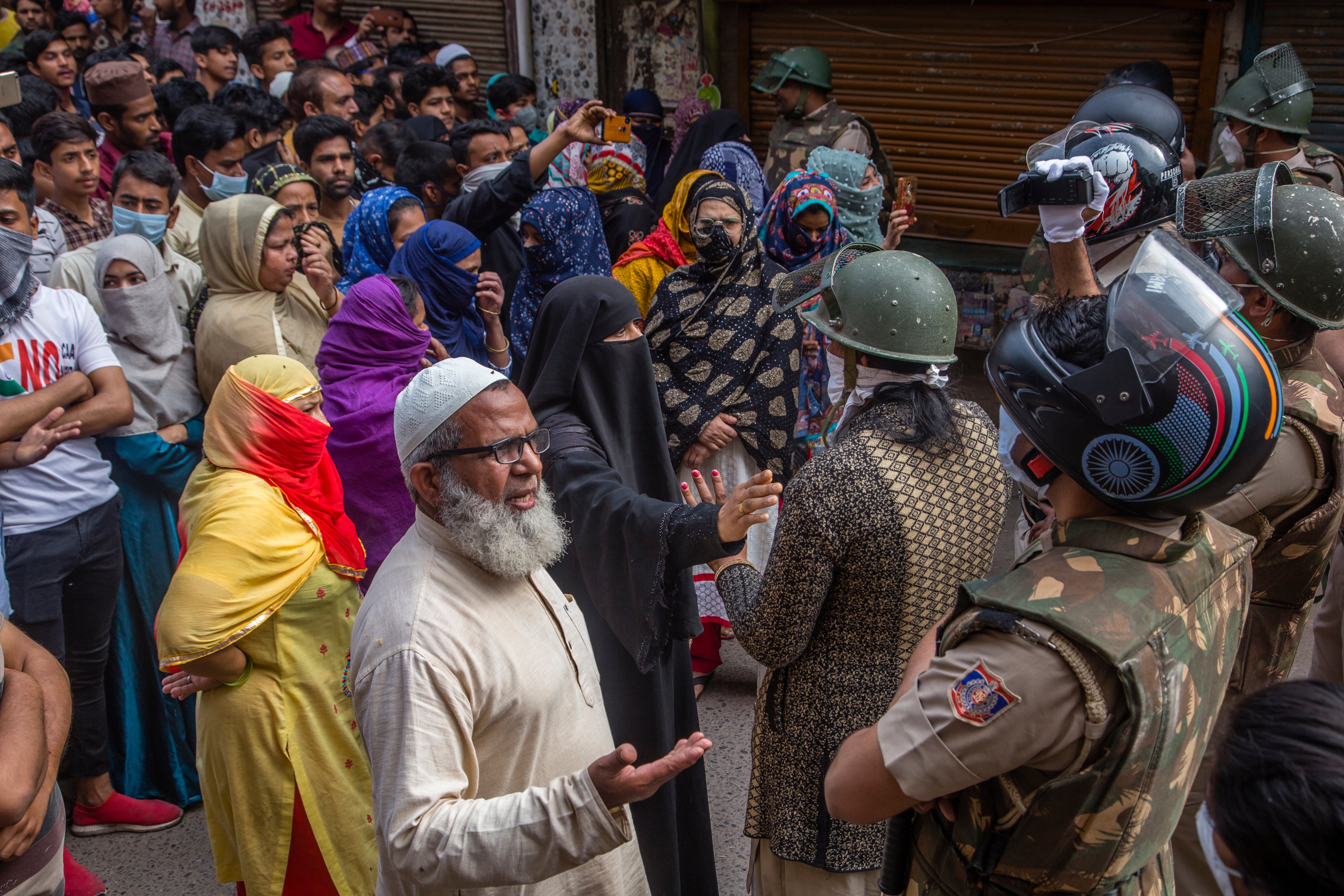Bulldozers at site of massive protest in Indian capital as part of demolition drive spark anger
Drive was later halted as India’s top court agreed to hear a petition against move

Your support helps us to tell the story
From reproductive rights to climate change to Big Tech, The Independent is on the ground when the story is developing. Whether it's investigating the financials of Elon Musk's pro-Trump PAC or producing our latest documentary, 'The A Word', which shines a light on the American women fighting for reproductive rights, we know how important it is to parse out the facts from the messaging.
At such a critical moment in US history, we need reporters on the ground. Your donation allows us to keep sending journalists to speak to both sides of the story.
The Independent is trusted by Americans across the entire political spectrum. And unlike many other quality news outlets, we choose not to lock Americans out of our reporting and analysis with paywalls. We believe quality journalism should be available to everyone, paid for by those who can afford it.
Your support makes all the difference.India’s capital Delhi is once again witnessing protests against civic body-approved demolition drives that have now reached the epicentre of 2020’s massive citizenship law protests.
On Monday morning, bulldozers rolled into the Shaheen Bagh area of east Delhi amid heavy police presence after South Delhi’s BJP-controlled civic body approved the move last week.
However, the bulldozers were met with heavy resistance from locals who alleged the anti-encroachment drive is targeting Muslim minority areas in the capital. Soon, thousands of people gathered in the market area of Shaheen Bagh where bulldozers had arrived, outnumbering police personnel.
Locals were seen sitting on roads and stopping the bulldozers that were brought for the demolition drive. Owners of some shops where the machines were headed voluntarily removed scaffoldings for construction.
It comes just a few days after a similar exercise was carried out in north Delhi’s Jahangirpuri on 20 April, where a communal clash broke out during a Hindu festival’s procession.
The protestors at Shaheen Bagh were also joined by members of opposition, including Amanatullah Khan, a legislator of Delhi’s ruling Aam Aadmi Party, who claimed the drive was political in nature.
“There are no illegal structures here. They have brought the bulldozer and put it here to show that I am obstructing their work to remove the encroachment,” Mr Khan told Indian news channel NDTV.
Many of those sitting in protest said the demolition drives were biased and questioned the civic body’s decision to conduct them suddenly.
“This is a bulldozer of hatred. It is completely unconstitutional. We will not let this demolition happen,” a protesting party leader told news agency IANS. Mohammed Niyaz, a 47-year-old resident in the neighborhood, called it “vote-bank politics” intended to divide the Hindu and Muslim communities.
Previously, officials termed the recent demolition drives as “routine exercises” to bring down illegal properties.
The drive was later halted as the country’s top court agreed to hear a petition against the move. However, the court refused to interfere in the issue and directed the affected parties to approach the Delhi High Court instead.
However, the Delhi chief of Bharatiya Janata Party (BJP) and other members have not only justified the demolition but also referred to residents of the area as illegal settlers.
“Today AAP and Congress leaders came in front of bulldozers. They have come in support of Bangladeshis and Rohingyas. People will teach them a lesson for this. This appeasement politics will not work,” BJP’s Delhi cheif Adesh Gupta said.
“Be it Shaheen Bagh or Jahangir Puri or Seemapuri, these are all bases for illegal businesses, illegal constructions and illegal infiltrators. There is a ban on entry of bulldozers, police, law. These are like mini-Pakistan where even getting the constitution of India implemented is becoming impossible,” said BJP’s Kapil Mishra in a tweet.
Shaheen Bagh is a sensitive area in the capital city that famously became the epicentre of the nationwide protests against the Citizenship Amendment Act (CAA) in 2019 and 2020. It was home to women-led protests against the controversial laws brought in by the Hindu nationalist government of Narendra Modi, aimed at identifying illegal settlers.
The Jahangirpuri demolition drive in April had stirred an uproar in the country after heart-rending visuals emerged of people begging authorities to stop as bulldozers razed homes and shops. Structures near a mosque, which was at the centre of the communal clash, were also razed.
The clashes in the area reportedly broke out after Hindu groups carried out processions near a mosque on the festival of Hanuman Jayanti, the birthday of Lord Hanuman, and chanted communal slogans. It also came despite the Supreme Court pausing the drive. The court had to intervene again.
Amid outrage against the move, British prime minister Boris Johnson’s visit to the JCB factory, a manufacturer of these bulldozers, was also criticised in the country as he posed with the machinery.
Join our commenting forum
Join thought-provoking conversations, follow other Independent readers and see their replies
Comments